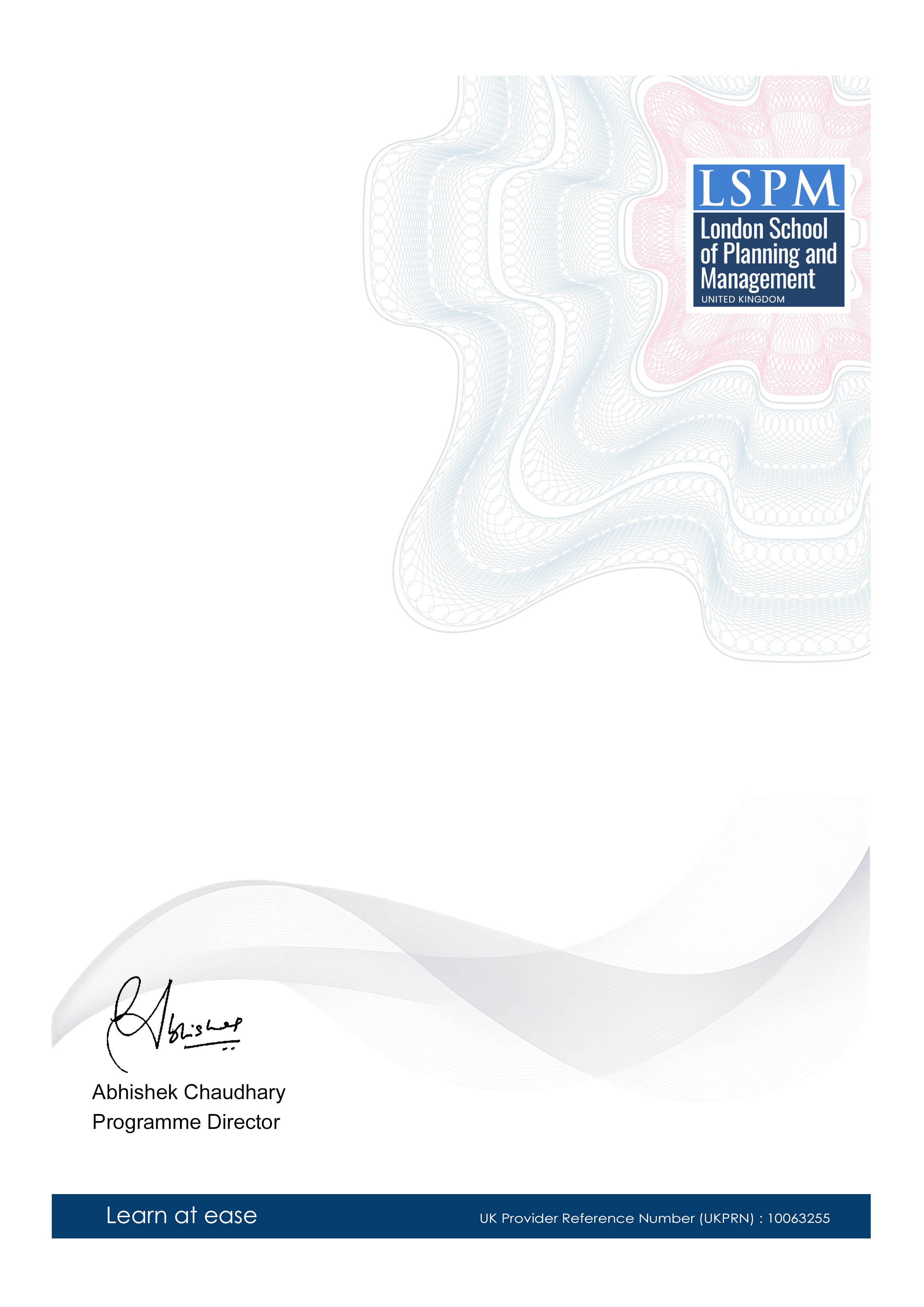Global Certificate Course in Remote Monitoring for Recognition
-- viewing nowThe Global Certificate Course in Remote Monitoring is a recognition-based course designed to empower learners with the essential skills for career advancement in the rapidly evolving field of remote monitoring. This course highlights the importance of remote monitoring in various industries, including healthcare, manufacturing, and IT services, by teaching learners how to effectively monitor and manage systems and processes from a distance.
6,453+
Students enrolled
GBP £ 149
GBP £ 215
Save 44% with our special offer
About this course
100% online
Learn from anywhere
Shareable certificate
Add to your LinkedIn profile
2 months to complete
at 2-3 hours a week
Start anytime
No waiting period
Course details
• Remote Monitoring Fundamentals: Understanding the basics of remote monitoring, including its purpose, benefits, and challenges. This unit will cover key concepts such as data transmission, real-time monitoring, and system architecture.
• Sensor Technology: This unit will explore the different types of sensors used in remote monitoring, including their specifications, advantages, and limitations. Students will learn about temperature, humidity, pressure, and motion sensors, as well as their applications in remote monitoring systems.
• Data Transmission and Communication Protocols: This unit will cover the various data transmission technologies and communication protocols used in remote monitoring systems. Students will learn about wired and wireless communication methods, as well as the advantages and disadvantages of each.
• Data Analysis and Visualization: In this unit, students will learn how to analyze and visualize data collected from remote monitoring systems. This will include data cleaning, processing, and analysis techniques, as well as the use of data visualization tools to present the results in a meaningful way.
• Security and Privacy: This unit will cover the security and privacy considerations of remote monitoring systems. Students will learn about the various threats and vulnerabilities associated with remote monitoring, as well as the best practices for securing the system and protecting user data.
• Regulations and Compliance: This unit will explore the various regulations and standards that apply to remote monitoring systems. Students will learn about the legal and ethical considerations associated with remote monitoring, as well as the steps required to ensure compliance with relevant laws and regulations.
• Implementation and Deployment: In this unit, students will learn about the practical considerations associated with implementing and deploying remote monitoring systems. This will include site preparation, hardware and software installation, and user training.
• Maintenance and Troubleshooting: This unit will cover the ongoing maintenance and troubleshooting requirements of remote monitoring systems. Students will learn about system monitoring
Career path
Entry requirements
- Basic understanding of the subject matter
- Proficiency in English language
- Computer and internet access
- Basic computer skills
- Dedication to complete the course
No prior formal qualifications required. Course designed for accessibility.
Course status
This course provides practical knowledge and skills for professional development. It is:
- Not accredited by a recognized body
- Not regulated by an authorized institution
- Complementary to formal qualifications
You'll receive a certificate of completion upon successfully finishing the course.
Why people choose us for their career
Loading reviews...
Frequently Asked Questions
Course fee
- 3-4 hours per week
- Early certificate delivery
- Open enrollment - start anytime
- 2-3 hours per week
- Regular certificate delivery
- Open enrollment - start anytime
- Full course access
- Digital certificate
- Course materials
Get course information
Earn a career certificate

